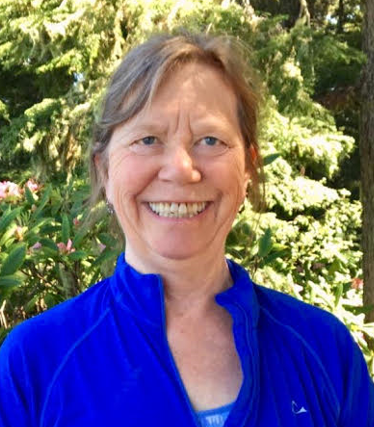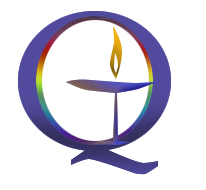Guest Blog by Diane Haas

This latest UU General Assembly was the 4th that I have attended. I especially like the workshops. They are educational and often inspiring. One that interested me this year was on Discernment Circles. Sitting in a circle comes naturally – it has been done for millennia. A circle equalizes power and creates a container that fosters trust and enables deep listening and full participation. At QUUF, we use circles typically in our Covenant Groups and often for our Leadership Assemblies.
Discernment Circles, adapted from a system of governance called Sociocracy to fit UU committees and teams, is a method of group decision making that shares power through equitable representation. Discussions occur in ‘rounds’ where each person has their say in turn rather than popcorn style. This encourages more participation with shared responsibility for the discussion and outcome.
The first step is a process called ‘picture forming’ that creates a shared understanding of the issue and the dimensions that need to be considered. Taking the time to share different points of view improves the quality of the process and outcome.
Once a shared understanding is reached, a proposal is made that addresses the dimensions identified. Then the rounds continue to address clarifying questions or objections. Clarifying questions help to elaborate and understand. Objections address concerns and aspects of the proposal that may need to be modified.
A key element is the concept of consent. The consent process serves the mission of the Committee or Team and not individual preferences. In the consent model, objections are addressed and a person can agree to move on if the proposal is ‘good enough for now, safe enough to try’ for a length of time and be revisited.
In a ‘consent round’ each person can 1) make an objection, giving their reasons, 2) consent, or 3) consent with concerns, which does not stop the proposal but expresses some wisdom. In the case of an objection, the proposal can be amended or go back to the drawing board. Setting a review date to evaluate how the decision is working, get feedback, and make necessary amendments takes the pressure off getting it perfect the first time around.
There are several things I like about Discernment Circles. They focus on equalizing power, participation, and shared responsibility. This is great for the introverts! As we have learned, a large percentage of UUs are introverts. This enables more ease of participation for those of us who tend to be quieter or on the margins. This process is more relational (vs. task oriented). Bringing everyone’s perspective and wisdom to the table and developing our listening skills makes for more successful outcomes in the long range. This methodology is used by large corporations that utilize teams that work together. Trying something new may feel awkward initially but there are many benefits to creating a culture of inclusiveness and listening to each other.
Links for more detailed information – Discernment Circle Training – Shared Leadership Circles – Picture Forming

Thank you, Diane. this was a very easy to understand and appreciate explanation of the discernment circles. Sounds like a wonderful process.
thank you Diane for sharing your thoughts on this process.
It seems to be most helpful for many of us to have equal
time to share and grow.
Appreciate your GA experience focus on a positive and helpful workshop to encourage community harmony and unity.
Thanks Mary
Thanks, Diane, for the clear description. Terms like these sound so wishy-washy that it’s very helpful to have some details.
Thanks for explaining discernment circles so clearly, Diane. In healthcare, we often used a similar process to reach consensus, especially on the more difficult issues. It took a bit more time, but the decisions were “owned” by the participants because everyone had been heard. Implementation and ongoing adherence were easier for everyone. Another valuable result was more cohesive teams.
Much of our success in the past 6+years at Quimper Village can be attributed to Sociocracy
I like this concept. Thanks, Diane, for sharing your thoughts about Discernment Circles. This would work well for family dinner table discussions.
Diane, Thank you for explaining it so clearly. I’ve never heard of this process. Really interesting and I can see how helpful it could be.